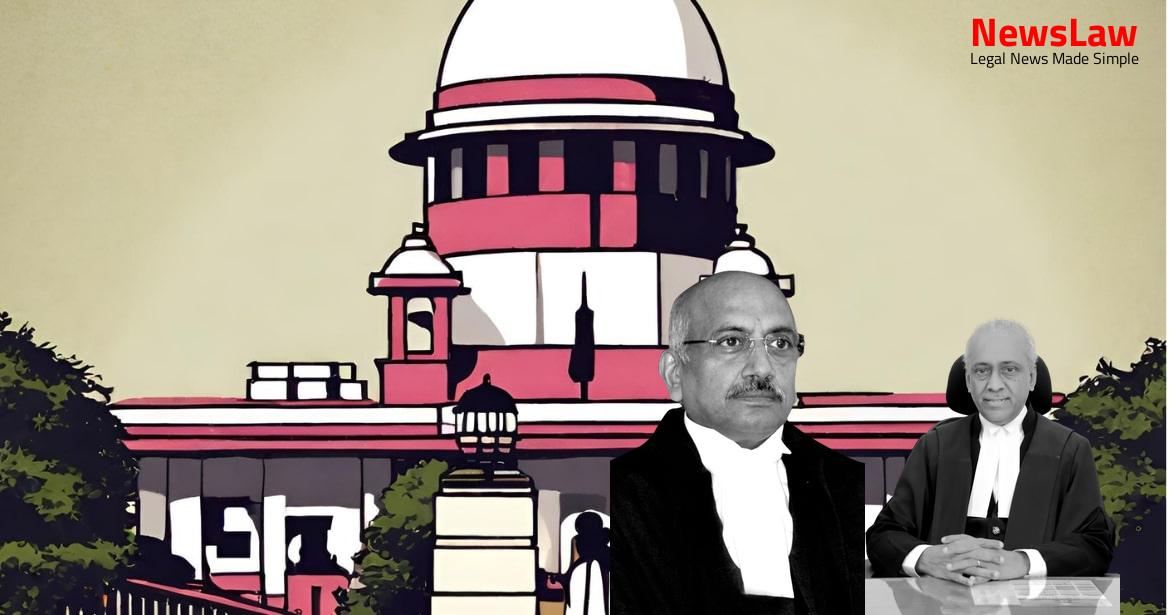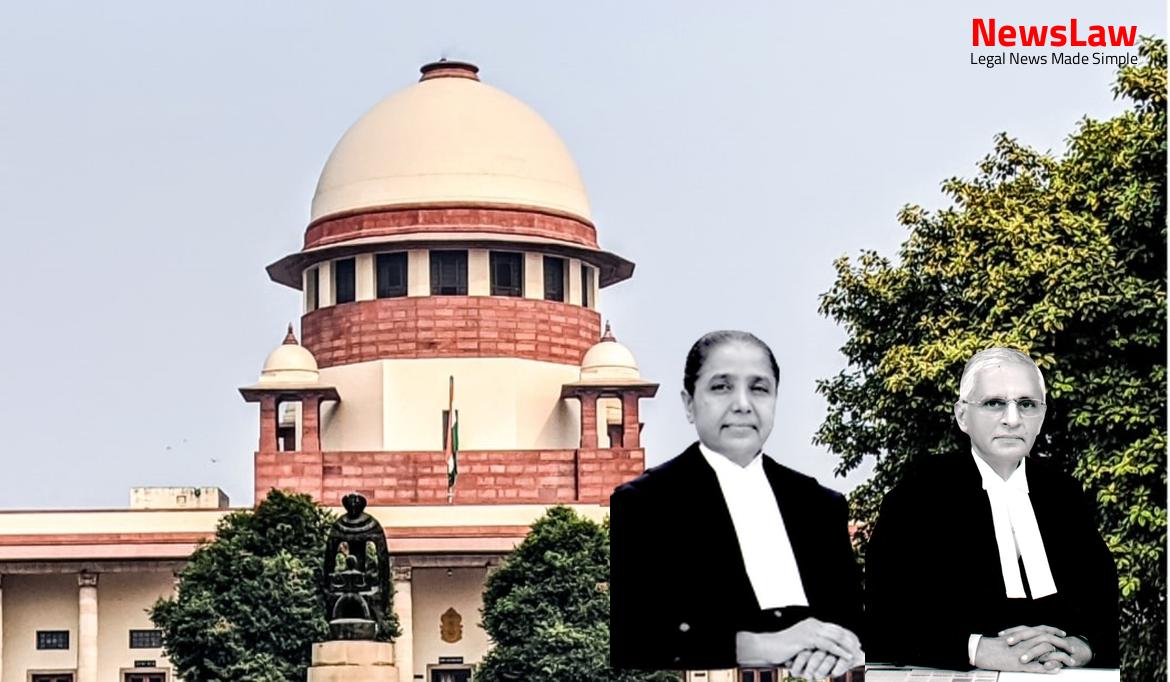The legal case summary underscores the importance of judicial caution in tender contracts, particularly those involving technical issues. The court’s focus on the need for expertise in adjudicating such matters and the potential consequences of unnecessary interference in commercial matters are highlighted. Stay tuned to learn more about the significance of upholding the employer’s decision in contract disputes and the overall impact on public interest.
Facts
- The interference in contract awarded to the appellant is unwarranted and has caused loss to public interest.
- The Division Bench of the High Court dismissed two appeals against other tenders on 7.10.2021.
- The present appeal challenges an order dated 6.1.2022 by the Division Bench of the High Court, which dismissed the State’s appeal against the order of the Single Bench.
- The High Court exercised judicial review to determine if the State’s decision was manifestly arbitrary or unjust.
- The Single Bench’s common order on 14.1.2020 set aside the contract awarded to the appellant for two works, including the one in question.
- The Division Bench noted the appellant had already started work on the project in question, but found no valid distinction with the other two works where appeals were dismissed.
- The Division Bench returned specific findings on the case.
- State objected to accepting the amended bank guarantee due to conditions beyond stipulated format
- 13 out of 15 bids, including respondent No. 1, were deemed non-responsive by Tender Evaluation Committee
- Appellant’s technical bid was found to be substantially responsive, leading to issuance of work contract on 3.10.2019
- Appellant commenced work on 22.10.2019 and completed earth work for 21.9 kms out of proposed 24 kms
- Other tender referenced in the writ has been cancelled
- Respondent No 1’s bid capacity was less than estimated cost of work
- Affidavit and undertaking supporting bid were not properly notarized
- Bank Guarantee did not follow prescribed format as per Standard Bidding Document
- Bank Guarantee validity period was prior to NIT issuance date, with discrepancies in amount mentioned
- Respondent No 1 filed a Writ Petition to challenge Technical Evaluation Committee’s decision on bid responsiveness
Also Read: Landmark Judgment on Compensation for Fatal Accident
Arguments
- The Court should not substitute its opinion in respect of acceptance of bank guarantee
- Bidder must adhere to the prescribed format for bank guarantees
- State reserves the right to deviate from bid document terms within acceptable parameters
Also Read: Land Acquisition Compensation Analysis
Analysis
- Contracts involving technical issues should be approached with caution by the courts due to the requirement of expertise in adjudicating such matters.
- The interpretation of contract terms, including essential conditions, should be viewed from the perspective of the employer.
- Interference in contracts for public services should be minimized to prevent disruptions to services meant for public good.
- The courts should refrain from imposing their decision over the decision of the employer regarding acceptance of a tender bid.
- The satisfaction of whether a bidder meets tender conditions lies primarily with the inviting authority.
- Interfering in tender processes leads to additional costs for the State and is against public interest.
- Courts should avoid imposing their decisions on technical matters in contracts.
- The specific Relief Act, 1963 was amended to include clause (ha) in Section 41 to address contract disputes more effectively.
- The State’s payment to the appellant and the financial implications of contract termination were highlighted.
- Courts must realize their limitations and avoid unnecessary interference in commercial matters.
- In contracts involving technical issues, Courts should be reluctant as judges may lack expertise.
- Courts should not magnify small mistakes in tender documents but give fair play to the government and public sector undertakings.
- Courts should avoid interference that could lead to unnecessary loss to the public exchequer.
- Caution was advised by the Court in the case of National High Speed Rail Corpn. Ltd. v. Montecarlo Ltd. to not delay mega projects due to writ petitions or stays.
- The role of the Government in economic activity is important for transparency in tender processes.
- The trend of almost every tender being challenged in court was noted.
- The authority that authors the tender document is best suited to interpret its requirements and should not be second-guessed by the court.
Also Read: Judicial Review of Search and Seizure Authorization
Case Title: M/S N.G. PROJECTS LIMITED Vs. M/S VINOD KUMAR JAIN (2022 INSC 319)
Case Number: C.A. No.-001846-001846 / 2022



